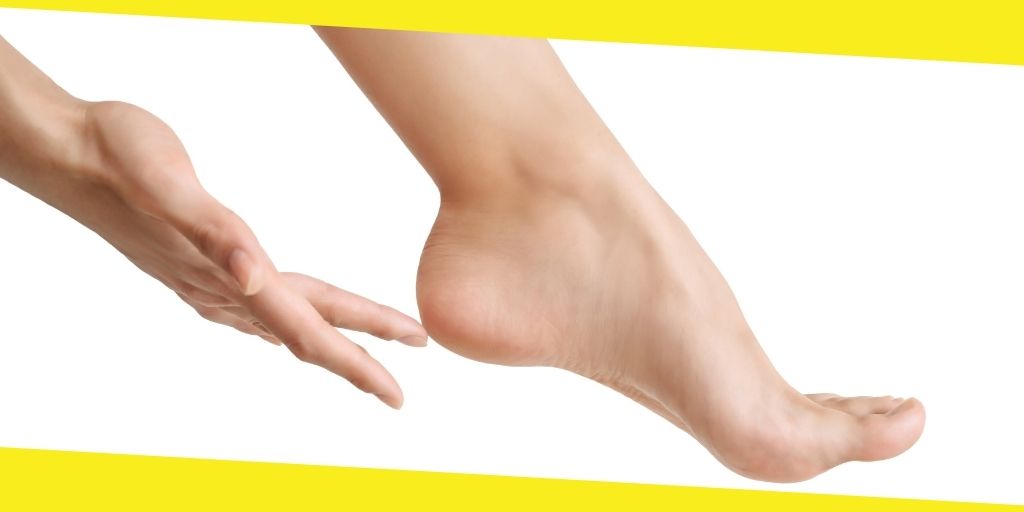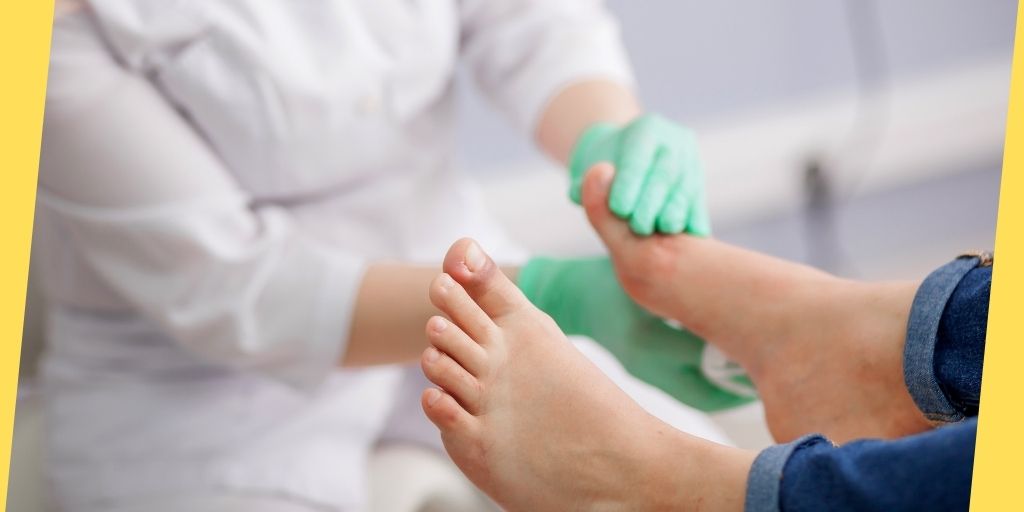8 Reasons To Look After Your Foot Health
This post was last updated on November 8th, 2021

The feet don’t receive as much care as other body parts, such as the face and hair. Sometimes, they’re even ignored. That’s because most people fail to realize that their feet are a tremendously important aspect of their bodies. You wouldn’t be able to carry out most of your daily tasks without your feet, so you should pay more attention to them.
The ligaments, tendons, muscles, and bones in the feet are hard at work with each step a person takes. Your feet indeed go through a lot each day. Here you can find the best world-class podiatrist Pakenham.
Taking care of your feet should be a year-round effort. That’s why experts recommend you work with a foot doctor or podiatrist from a reliable foot health center like Eastern Idaho Foot Clinic. It’s also essential to note that healthy foot care isn’t only all about appearance, such as a fresh coat of nail polish.
One should have a good foot care routine as part of his/her overall health and wellness plan. Foot pain and other foot problems may stem from a lack of attention to your foot health. For some people, these issues can be life-changing in a negative way.
Take a closer look at the eight reasons taking care of your feet is essential.
Contents
Toggle1. Your Feet Can Affect General Health
Foot health can be an indicator of general health. It can indicate nerve disorders or circulation problems. However, many people mistakenly think that their feet problems are merely part of them getting older. It isn’t always the case, though. Sometimes, they just fail to look after their foot health.
When your feet hurt, you’re less likely to get involved in physical activities or get the exercise you need. That’s because healthy feet play a vital role in your ability to stay active.
For instance, you can enhance your balance and remain steady while walking or running if your feet are in excellent condition. On the other hand, falls and slips are more likely to happen if you have aching or injured feet.
2. They Constantly Collect Dirt
The microgrooves in your soles and the cramped spaces under the toenails and toes are masters at holding on to microscopic bits of viruses, oil, fungus, bacteria, and dirt. You might not see them, but there are precisely more than a hundred types of fungus and bacteria latching onto your foot each day.
From locker room floors and shower tiles to the soil and grass, the feet come into contact with surfaces and materials the rest of your body doesn’t. This explains why they collect millions of dirt every day. Basically, the skin on your foot is a sponge soaking up different nasty things from every surface it touches.
Cleaning your feet from time to time helps. Use towels with microdot technology that allows them to do deep cleaning into your foot’s soles and microgrooves. Don’t forget to disinfect your feet, too. Leaving them refreshed and relaxed by breaking oil, sweat, and dirt using moisturizers, extracts, and essential oils is likewise ideal.
3. Your Feet Is Incredibly Sensitive
The feet are super sensitive. Yes, it’s true, even if they’re covered with thick skin. That’s because they contain more than 7000 nerve endings. No wonder why stepping even on the smallest Lego piece hurts so much. It’s also the reason a foot rub makes you feel like you’re in total bliss.
Because of being incredibly sensitive, you’ll feel the intensity of pain, cramping, and stiffness in your foot. Alleviating and preventing these symptoms require manual or specialized daily stretches. For long-lasting comfort, some people prefer using pain relief cream. This type of cream quickly soothes inflammation, reduces swelling, and numbs the pain.
4. Neglecting Foot Health Causes Body Pains
One of the most important decisions people make when it comes to their foot health is picking the right pair of footwear. Wearing the wrong pair of shoes can cause body pain. Bad posture and vertebral pain can also result from the continuous use of uncomfortable footwear.
When picking a pair of footwear, avoid buying substandard brands just because they’re cheaper. Choose brands in the market that are custom-made for walking or running. They can balance out body weight evenly on your foot.
Ensure that the shoes or footwear aren’t very tight before buying them. It’s best to try wearing them twice to avoid suffering from shoe-bite and blisters later on.
5. Your Foot’s Skin Is Special
Did you know that your foot’s skin is up to eight times thicker compared to the skin on the rest of your body? That’s because your feet have to support your weight all day long. This is also why you shouldn’t use random skincare products on them. Do you use random products on your face? You don’t—the same goes for your feet.
The skin on the feet is denser and tougher. This makes it very difficult for regular skincare products to penetrate deep enough for efficacy. The problem is that foot skin is highly vulnerable to dryness, so you have to be careful.
The rate at which skin on the feet loses moisture is also faster than any other part of your body. Constant moisture loss happens by trapping your feet inside shoes where they experience temperatures of up to more than a hundred degrees. On top of that is the downward pressure you’re putting on your feet daily.
Thus, look for moisturizers that can penetrate deeply into your foot skin for sustained hydration. Besides restoring water content and retaining hydration, the moisturizer you’ll use should also promote cellular elasticity.
6. The Feet Are Prone To Infections
One must be extra careful when it comes to cuts and bruises on the feet. As you know, your feet are in direct contact with dust. With that said, it’s essential to attend to any injury or cut immediately because of the higher chances of contamination.
Stomach-related issues, such as weak liver and stomach upset, may also manifest their symptoms through your feet. Your toenail’s color may change when these conditions appear.
Note that fungal infections also happen frequently. One can avoid them by following a regular foot care routine and maintaining proper hygiene.
Providing a little extra attention to your feet goes a long way in saving you from chronic disorders. For instance, don’t just go after the most beautiful pair of shoes when planning to purchase one—always go for sneakers that give the most comfort.
7. Unique Problems May Arise From Poor Foot Health
Not only are your feet prone to infections, but they also face unique problems. It’s understandable, because the feet are one of your body’s most hardworking parts. They contain 6% of your muscles, 18% of your joints, and 25% of your bones. These complex structures are subject to about a thousand pounds of force with every single step.
Unfortunately, many people don’t take care of their feet properly despite what their feet have to go through each day. You use them to stand, walk, run, and forcefully squeeze them into a pair of shoes.
The truth is, the unique conditions people put their feet through every day are the reasons unique foot problems, such as odor, blisters, and calluses occur. Thankfully, there are now foot care products for specific complications. They’re perfect for preventing future conditions from arising or treating an existing issue.
8. The Feet Show Signs Of Illnesses
What most people don’t realize is that their feet mirror their health issues. Nerves on the feet show the initial symptoms of arthritis, diabetes, and other medical conditions. This is true for any disorder that’s associated with the circulatory system. Just by touching or seeing a person’s foot, you can tell that he or she is unwell. When one is suffering from circulatory system-related conditions, the feet turn cold because of poor blood circulation. Visit a doctor to get examined the next time you experience the following:
-
Numbness Or Tingling
Numbness or tingling in your feet and toes may be an indication of diabetes, B12 deficiency, and neurological conditions such as spinal stenosis and peripheral neuropathy.
Check with your physician if you notice that your toes and feet are tingling for more than a few minutes daily. It could be caused by a more pressing issue other than uncomfortable sleeping positions.
-
Discolored Spot Underneath The Toenail
A bruise or dark line under your toenail rarely happens. However, it could be a sign of hematoma or melanoma. Melanoma is a form of skin cancer that can potentially be fatal. It usually looks similar to a bruise, but it can also appear like a brown or black streak. It’s also possible that the discoloration underneath your toenail is caused by bleeding due to trauma or injury that caused subungual hematoma.
-
Painful And Swollen Foot
Pregnancy and improper footwear are only some of the many benign reasons for a swollen and painful toe or foot. However, it could also be showing renal disease, venous insufficiency, neuropathic arthropathy, and gout or congestive heart failure.
Most of the time, gout, an inflammatory arthritis type, results from elevated uric acid levels. However, it isn’t always the case because it can mimic other things like deep vein thrombosis, Charcot arthropathy, fractures, and even skin infections.
-
Cold Feet And Toes
Bundling up and sitting by the fire for a while may be enough to get rid of cold feet and toes. However, it’s essential to note that experiencing this issue may also point to a circulatory problem or vascular disorder.
One of the most common conditions that cause cold feet is PAD or peripheral artery disorder. It’s a circulation problem related to diabetes. PAD restricts blood flow, causing the toes or feet to feel colder compared to the rest of your body. PAD happens when a spasm causes an artery to constrict or become occlusive. Reynaud’s disease is an example of spastic PADs, while peripheral arterial occlusion represents the occlusive conditions.
Note that genetic factors, smoking, and poor blood circulation due to diabetes may also cause cold feet. That’s because a narrowing of the arteries can result from high blood sugar levels, thus reducing blood supply to tissues.
How To Prevent Foot Problems
Paying more attention to your feet can prevent many issues. Inspect your foot regularly. Look for any signs that you need to see your doctor. These signs may include bunions, sores, blisters, bumps, discolorations, and swelling.
Some of the ways you can take care of your feet are:
- Wiggling your feet and toes when they’ve been in one position for a while
- Stretching your legs after sitting for some time
- Wearing socks at night
- Applying moisturizing lotion to your feet
- Taking warm foot baths
- Stimulating blood flow by having a foot massage
- Increasing blood circulation by taking regular walks
When To Schedule An Appointment With A Physician

If any part of your lower legs turns black or blue, or if you’re experiencing reduced sensations in your feet, see your doctor right away. You should also alert your physician if you experience numbness, tingling, or pain. Talking to your doctor is also necessary if you have a wound or sore in your feet that doesn’t seem to heal. A medical professional should be able to address these problems.
Final Thoughts
Problems in the feet can go unnoticed for a long time because most people aren’t paying much attention to this extremely crucial body part. Many often forget that their feet need proper care too. The last thing you’d want is for foot issues to worsen, so start treating them with the same preventative care the rest of your body gets regularly. Doing so will ensure that not only your foot, but also your well-being gets the care and attention it needs.
You’ve already learned why you need to look after your foot health. You’ve also read some tips on how to prevent foot problems. Lastly, you already know when to visit a doctor and have your feet checked. After reading this comprehensive guide on foot care, you can now give your feet some love by keeping them healthy at all times.
Recommended For You
What Medical Care Is Available for Families?
Most Inside
Most Inside offers high-quality recommendations and valuable updates to enhance all aspects of your life, providing premium guidance and enriching experiences.




